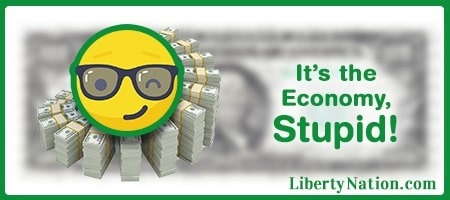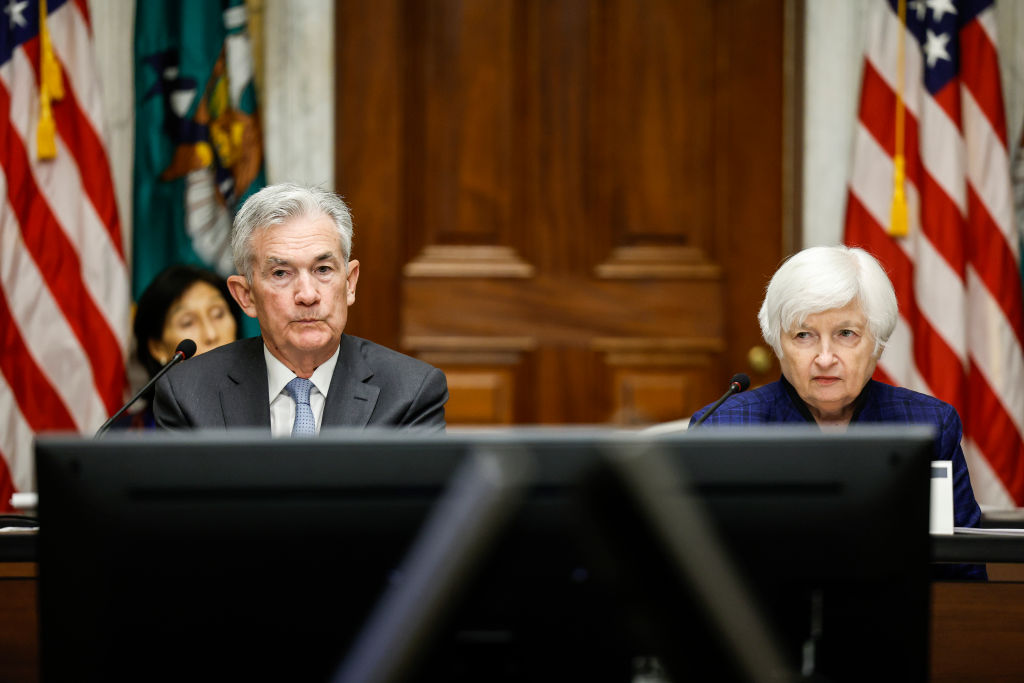Can the American people feel confident about their deposits in US banks? It depends on whom you ask. Federal Reserve Chair Jerome Powell all but confirmed that depositors could sleep easy at night knowing their money is safe. Treasury Secretary Janet Yellen rejected that the administration is considering blanket insurance for all bank depositors. Is it any wonder why the financial markets tanked toward the closing bell on March 22? Higher interest rates, uncertainty in the banking sector, and recession concerns. As the classic Airplane! quote goes, “Looks like I picked the wrong week to quit sniffing glue.”
Powell: Your Deposits Are Safe
The Federal Open Market Committee (FOMC) raised the benchmark fed funds rate by 25 basis points to a target range of 4.75% and 5%, the highest in 16 years. Investors widely anticipated this, so markets paid close attention to what Chair Powell would say during the post-FOMC meeting press conference, which always ensures the market experiences a roller coaster ride. Powell did not fail in this regard. He touched upon two main subjects: the banking system and interest rates.
In his opening remarks, the central bank figurehead averred that “our banking system is sound and resilient, with strong capital and liquidity.” He noted that the failure of Silicon Valley Bank (SVB) was a result of terrible management. While he did not blame the event on regulation, the Fed chair agreed that it would be prudent to strengthen regulations and supervision. He called the SVB case an “outlier” due to its enormous number of uninsured deposits and the company’s long-term bond holdings.
 At one point, Powell was asked if the Fed would bail out all depositors if a bank failed. He did not explicitly say that the central bank would come to the rescue, but he did hint at it. “What I’m saying is you’ve seen that we have the tools to protect depositors when there is a threat of serious harm to the economy or to the financial system, and we’re prepared to use those tools. I think depositors should assume that their deposits are safe,” he said.
At one point, Powell was asked if the Fed would bail out all depositors if a bank failed. He did not explicitly say that the central bank would come to the rescue, but he did hint at it. “What I’m saying is you’ve seen that we have the tools to protect depositors when there is a threat of serious harm to the economy or to the financial system, and we’re prepared to use those tools. I think depositors should assume that their deposits are safe,” he said.
On the subject of interest rates, the FOMC’s Survey of Economic Projections (SEP) revealed that officials are penciling in one more rate hike this year. However, Powell explained that this would be uncertain based on economic conditions, the financial system, and inflation. “If we need to raise rates higher, we will,” he purported, adding that rate cuts are also not in the Fed’s baseline expectations in 2023.
At this stage, financial markets should brace for tighter credit conditions, which could weigh on economic growth. The SEP update showed that rate-setting Committee participants lowered their gross domestic product (GDP) growth rate forecast from 0.5% to 0.4% for the year. Does this mean the SVB and Signature Bank failures – and other possible collapses – will trigger a recession? The soft landing remains uncertain, according to Jerome Powell.
The lady from Brooklyn may have provided some insight into what Americans can anticipate from their institutions in Washington. Or maybe not.

(Photo by Anna Moneymaker/Getty Images)
Yellen Into the Void
Appearing before the Senate Appropriations Subcommittee, Yellen clarified that federal bank regulators were not considering proposals to insure all US bank deposits. However, there have been recommendations from Republican and Democratic lawmakers, banking organizations, and consumer advocates to usher in blanket insurance, even if it were a temporary solution.
“I have not considered or discussed anything having to do with blanket insurance or guarantees of all deposits,” Yellen told senators during the hearing, adding that regulators’ only objective in bailing out SVB and Signature was to prevent contagion to the broader banking system rather than providing an advantage to one bank over another. “For the moment, we’re trying to stabilize the situation using the tools at our disposal,” the Treasury Secretary iterated.
That said, Yellen acknowledged that she would be open to policy ideas, such as Sen. Joe Manchin’s (D-WV) suggestion for customers paying higher bank fees for larger deposits. But this was not enough for the equities arena as the leading benchmark indexes plunged and regional bank shares tanked.
The One-Armed Economist
Former President Harry Truman once requested to be sent a one-armed economist, as he was tired of economic specialists espousing “on the one hand, this” and “on the other hand, that.” Of course, both Yellen and Powell are trained economists, so they understand that there are many variables to paramount situations. For Powell, the policy rate will hit the peak of 5.1%, and that is the end of this tightening cycle unless something dire occurs, resulting in a hike or a cut. For Yellen, not everyone will receive a bailout unless it is bedlam on the streets. Each individual has been walking a tightrope, with Powell being delicate in his comments not to upset Wall Street and Yellen trying to keep the White House politically competent and intact during these crises. Like markets, the American people desire conviction. More than two years since President Joe Biden moved into 1600 Pennsylvania Avenue, and the public has yet to be afforded any certainty beyond death and taxes.
Do you have an opinion about this article? We’d love to hear it! If you send your comments to [email protected], we might even publish your edited remarks in our new feature, LN Readers Speak Out. Remember to include the title of the article along with your name, city, and state.
Please respect our republishing guidelines. Republication permission does not equal site endorsement. Click here.

